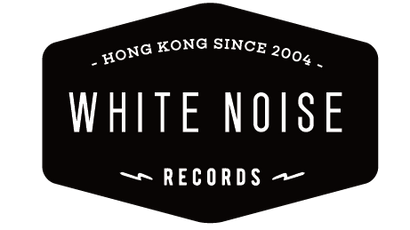Item Notes
2LP Edition
Release Date: 6/7/2018
Label: Habibi Funk
CD Edition
Release Date: 6/7/2018
Label: Habibi Funk
Description
Tracklisting
1. Shmasha 06:05
2. Muslims and Christians 05:16
3. Agricultural Revolution 05:07
4. African Unity 07:04
5. Sudan In The Heart Of Africa 06:39
6. Taban Ahwak 06:31
7. Ghali Ghali Ya Jinub 06:23
8. Al Asafir 05:19
9. Ya Shaifni 06:44
10. Ajmal Alyam 06:30
1. Shmasha 06:05
2. Muslims and Christians 05:16
3. Agricultural Revolution 05:07
4. African Unity 07:04
5. Sudan In The Heart Of Africa 06:39
6. Taban Ahwak 06:31
7. Ghali Ghali Ya Jinub 06:23
8. Al Asafir 05:19
9. Ya Shaifni 06:44
10. Ajmal Alyam 06:30
You may also like

![Minuano - Love Logic [PRE-ORDER, Colored Vinyl Release Date: 1-OCT-2025]](http://whitenoiserecords.org/cdn/shop/products/Minuano-LoveLogic2_{width}x.jpg?v=1641548842)
Minuano - Love Logic [PRE-ORDER, Colored Vinyl Release Date: 1-OCT-2025]
Sale priceFrom HK$300.00
In stock

Stan Getz / Joao Gilberto featuring Antonio Carlos Jobim - Getz / Gilberto (Acoustic Sounds Series)
Sale priceHK$385.00
In stock

Stan Getz / Joao Gilberto featuring Antonio Carlos Jobim - Getz / Gilberto
Sale priceHK$275.00
In stock
Michael Jackson / Jackson 5 - Hiroshi Fujiwara & K.U.D.O. Presents Michael Jackson / Jackson 5 Remixes In Dub
Sale priceHK$495.00
Sold out
Kendy Suen + K.U.D.O (Major Force Productions) - Kendy Suen "SHINKA" K.U.D.O REMIX
Sale priceHK$195.00
In stock

Various - 春光乍洩 Happy Together (Original Motion Picture Soundtrack) A Wong Kar Wai Film (Zoetrope Picture Disc)
Sale priceHK$465.00
Sold out

The New Stan Getz Quartet Featuring Astrud Gilberto - Getz Au Go Go (Acoustic Sounds Series)
Sale priceHK$385.00
In stock

Bob Marley And The Wailers - Legend (The Best Of Bob Marley And The Wailers)
Sale priceHK$335.00
Sold out




![Glass Beams - Mahal [PRE-ORDER, Vinyl Release Date: 17-May-2024]](http://whitenoiserecords.org/cdn/shop/files/glass-beams-mahal-pre-order-vinyl-release-date-17-may-2024_{width}x.webp?v=1709096397)
![Glass Beams - Mahal [PRE-ORDER, Vinyl Release Date: 17-May-2024]](http://whitenoiserecords.org/cdn/shop/files/img99674_glass-beams-mahal-pre-order-vinyl-release-date-17-may-2024_{width}x.webp?v=1709096400)
![Minuano - Spring Lovers [PRE-ORDER, Vinyl Release Date: Mid March-2025]](http://whitenoiserecords.org/cdn/shop/files/minuano-spring-lovers-pre-order-vinyl-release-date-mid-march-2025_{width}x.jpg?v=1731929259)
![Minuano - Spring Lovers [PRE-ORDER, Vinyl Release Date: Mid March-2025]](http://whitenoiserecords.org/cdn/shop/files/img76042_minuano-spring-lovers-pre-order-vinyl-release-date-mid-march-2025_{width}x.jpg?v=1731929263)














![Fishmans - Uchu The Best of Fishmans [PRE-ORDER, Vinyl Release Date: 24-July-2024]](http://whitenoiserecords.org/cdn/shop/files/fishmans-uchu-the-best-of-fishmans-pre-order-vinyl-release-date-24-july-2024_{width}x.jpg?v=1707451813)




![前田美波里 Bibari Maeda - First [PRE-ORDER, Vinyl Release Date: 3-Dec-2022]](http://whitenoiserecords.org/cdn/shop/products/E5_89_8D_E7_94_B0_E7_BE_8E_E6_B3_A2_E9_87_8C-bibari-maeda-first-pre-order-vinyl-release-date-3-dec-2022_{width}x.jpg?v=1661665941)













































